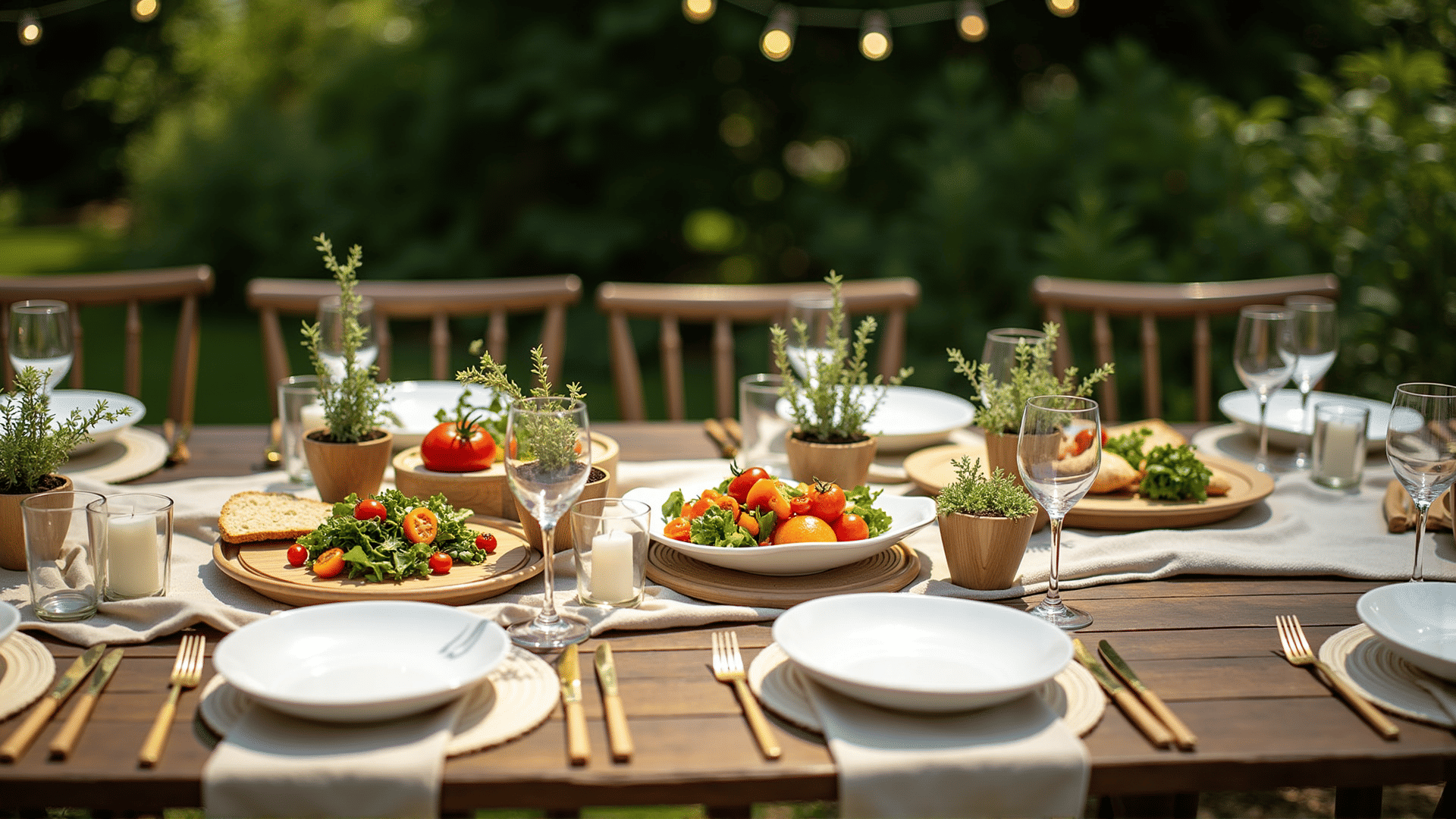As we head into 2024, the catering industry continues to innovate and embrace eco-friendly practices, integrating sustainability into the core of event planning. This shift not only reflects a growing global consciousness toward environmental responsibility but also meets the rising demands of consumers seeking greener alternatives. Here, we explore some of the top eco-friendly catering trends that are poised to make a significant impact this year.
1. Sustainable Sourcing
Sustainable sourcing is at the heart of eco-friendly catering. Caterers are dedicating more effort to sourcing ingredients from local farms and suppliers who practice sustainable agriculture. This reduces the carbon footprint associated with transporting food over long distances and supports local economies. In addition, there is an increasing preference for organic produce and sustainably sourced seafood, ensuring that the ingredients are as environmentally friendly as they are delicious.
2. Zero-Waste Menus
The zero-waste movement is gaining momentum in the catering world. Events are being designed around menus that aim to utilize every part of the ingredient, minimizing food waste. This involves creative use of leftovers and by-products, such as using vegetable trimmings to make stocks, or incorporating unconventional parts of fruits and vegetables into dishes. Composting initiatives are also becoming more popular, turning organic waste into valuable compost for local farms.
3. Plant-Based and Flexitarian Options
A shift towards plant-based and flexitarian diets is another significant trend. Caterers are expanding their menus to include a wide variety of plant-based options, making them more inclusive for diverse dietary preferences and reducing the environmental impact associated with meat production. These options not only cater to vegans and vegetarians but also appeal to flexitarians who aim to reduce meat consumption. The creative use of vegetables, grains, and legumes produces dishes that are both flavorful and eco-friendly.
4. Eco-Conscious Packaging and Utensils
Single-use plastics are being phased out in favor of compostable, biodegradable, and reusable options. Caterers are opting for utensils made from bamboo or cornstarch, and packaging from recycled materials. This trend extends to glassware and cutlery rental services, which eliminate the need for disposable options altogether.
5. Venue and Energy Efficiency
Eco-friendly catering also considers the venue itself. Venues that use renewable energy sources, like solar panels, or have certified green building standards, are increasingly preferred. Caterers are working with venues to optimize energy use, implementing practices such as efficient cooking methods and minimal use of appliances to manage electricity consumption during events.
6. Connecting with Community Initiatives
Partnering with community programs can enhance the sustainability of your event. Collaborating with food recovery programs to donate surplus food helps feed those in need while reducing waste. In some cases, chefs offer workshops or live vegan cooking demonstrations at events, educating guests about sustainable practices and engaging with them on a deeper level.
7. Mindful Beverages
Sustainable catering does not stop at food; the drinks offered at events are just as crucial. Caterers are increasingly serving organic wines, local craft beers, and cocktails made with locally sourced spirits and mixers. Additionally, reducing the use of single-use plastic water bottles in favor of water stations and non-plastic beverage containers highlights a commitment to reducing waste.
These trends in eco-friendly catering not only help reduce the environmental impact of events but also create a more meaningful and engaging experience for attendees. By integrating sustainable sourcing, zero-waste practices, and community collaboration into your event planning, you can make your gatherings greener and more impactful, setting a standard for future celebrations. As 2024 unfolds, these trends will likely evolve and expand, promising a future where catering and sustainability seamlessly converge.
